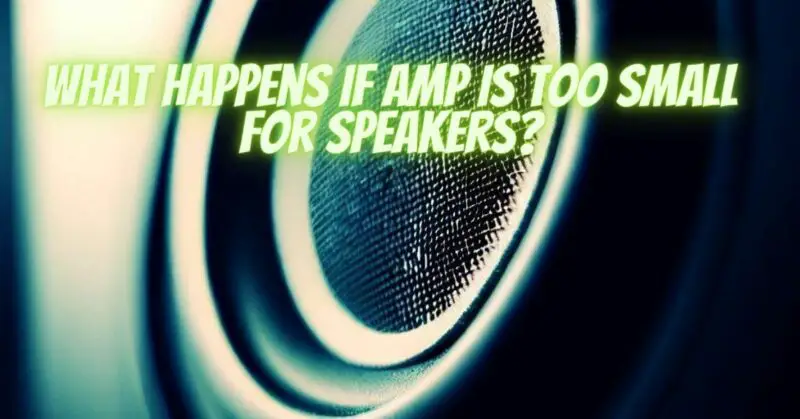An amplifier is an electronic device that increases the power of an audio signal. It does this by taking the input signal and amplifying it, or making it louder. Speakers are devices that convert the amplified signal back into sound waves.
When an amp is too small for speakers, it can cause a number of problems, including:
- Distortion: When an amp is asked to produce more power than it’s capable of, it can cause the sound to become distorted. This is because the amp is unable to accurately reproduce the original signal, and instead produces a “muddy” or “fuzzy” sound.
- Clipping: Clipping is a more extreme form of distortion that occurs when an amplifier is pushed to its limits. In this case, the amplifier produces a series of sharp, unnatural-sounding peaks in the audio signal. Clipping can damage your speakers over time.
- Damage to speakers: If you continue to play music at high volumes with an amplifier that’s not powerful enough, you can eventually damage your speakers. The speakers’ cones can become overextended, and the voice coils can overheat. In severe cases, this can lead to permanent speaker damage.
What happens if amp is too small for speakers?
When an amp is too small for speakers, it simply cannot provide enough power to drive the speakers to their full potential. This can result in a number of problems, including:
- Lack of volume: The speakers will not be able to reach their maximum volume, even if you turn up the amp’s volume control.
- Poor sound quality: The sound will be muddy and lacking in clarity.
- Damage to speakers: Over time, the speakers may be damaged by the excessive heat and stress caused by the underpowered amp.
How to avoid using an amp that is too small for your speakers?
To avoid using an amp that is too small for your speakers, it is important to match the amp’s power output to the speakers’ power handling capacity. The amp’s power output is measured in watts, and the speakers’ power handling capacity is also measured in watts. You can find this information in the specifications for both the amp and the speakers.
In general, you should choose an amp that has a power output that is at least twice the power handling capacity of your speakers. This will give you some headroom to play your music at higher volumes without risking damage to your speakers.
If you are not sure how to match an amp to your speakers, it is always best to consult with a qualified audio technician.
Conclusion
Using an amp that is too small for your speakers can cause a number of problems, including distortion, clipping, and damage to speakers. To avoid these problems, it is important to match the amp’s power output to the speakers’ power handling capacity.


